Sweet dreams are made of Zzz’s… and often some solid analytics.
Nearly one-third of our lives is spent sleeping, and getting enough sleep is essential to our overall health. Experts recommend we get 7 to 9 hours of quality sleep each night, which is why it’s so important not to let a subpar snooze mess with our physical and mental well-being.
So, how can we make sure we’re making the most of our nonwaking hours? A sleep tracker can help.
Investing in a sleep tracker can help you break down the good, the bad, and the necessary adjustments to improve your sleep quality.
Available in a variety of types — from watches and rings to under-mattress pads, and even headbands — there are a ton of different sleep trackers that can provide you with insights and info on your sleep habits, whether you already sleep like a baby or you toss and turn all night long.
To help you get started on your sleep tracking journey, we’ve rounded up a few of our fave trackers, as well as some tips to help you get started on finding the right device for you.
Best sleep trackers
- Best watch tracker: Fitbit Sense
- Best wearable tracker: Oura Ring Generation 3
- Best tracker with O2 sensor: Wellue O2 Ring
- Best tracker for fitness and sleep: Garmin Venu 2
- Best under-mattress tracker: Withings Sleep Tracking Pad
- Best budget tracker: Sleepon Go2Sleep Tracker
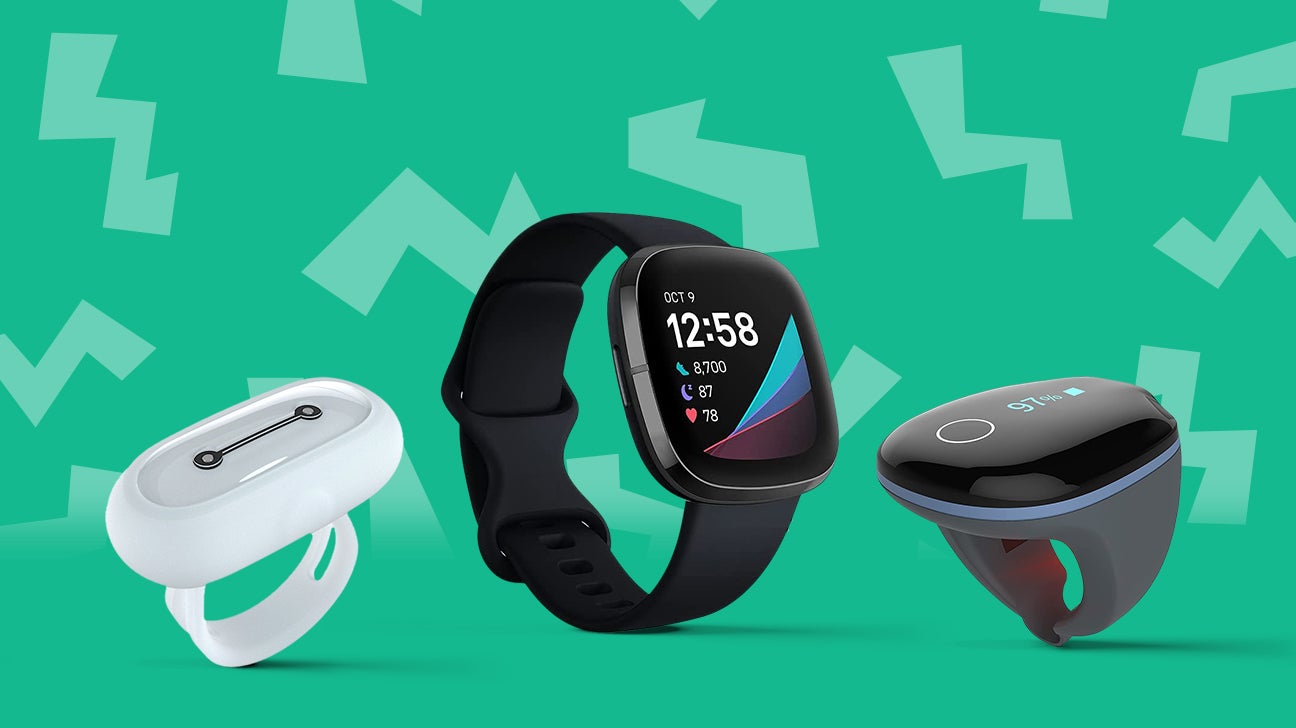
How we chose the best sleep trackers
Sleep isn’t just important, it’s simply wonderful. This is why we made sure to put some deep thought into which trackers we chose.
To make our selections, we considered:
- Technology and features. Beyond tracking basic sleep deets, we checked out trackers that dive deep into your sleep to deliver quality insights into what’s going on while you snooze. Each of our options have been touted by users for their quality and accuracy, ensuring that you’re being provided with the best info possible.
- Variety. There are a wide variety of sleep tracking products on the market, from wearables to under-mattress devices. We made sure to include a cross-section of tracker types to help you find one to best match your lifestyle and needs.
- Brand reputation. Reputation is everything, and we got you covered. All of our selections come from brands that offer quality products and top-notch customer support.
- Battery life. All of our choices will get you through at least one (long) night of sleep before they need to be charged — and one or two don’t need to be charged at all (hey there, plug-in devices!).
- Reviews. We scoured the reviews for each product to make sure that the manufacturer claims are legit. While no device is perfect, all of our selections have overwhelmingly positive reviews from actual users.
Pricing guide
- $ = under $150
- $$ = $150 to $350
- $$$ = over $350
Greatist’s picks for the best sleep trackers
Best watch sleep tracker
Fitbit Sense
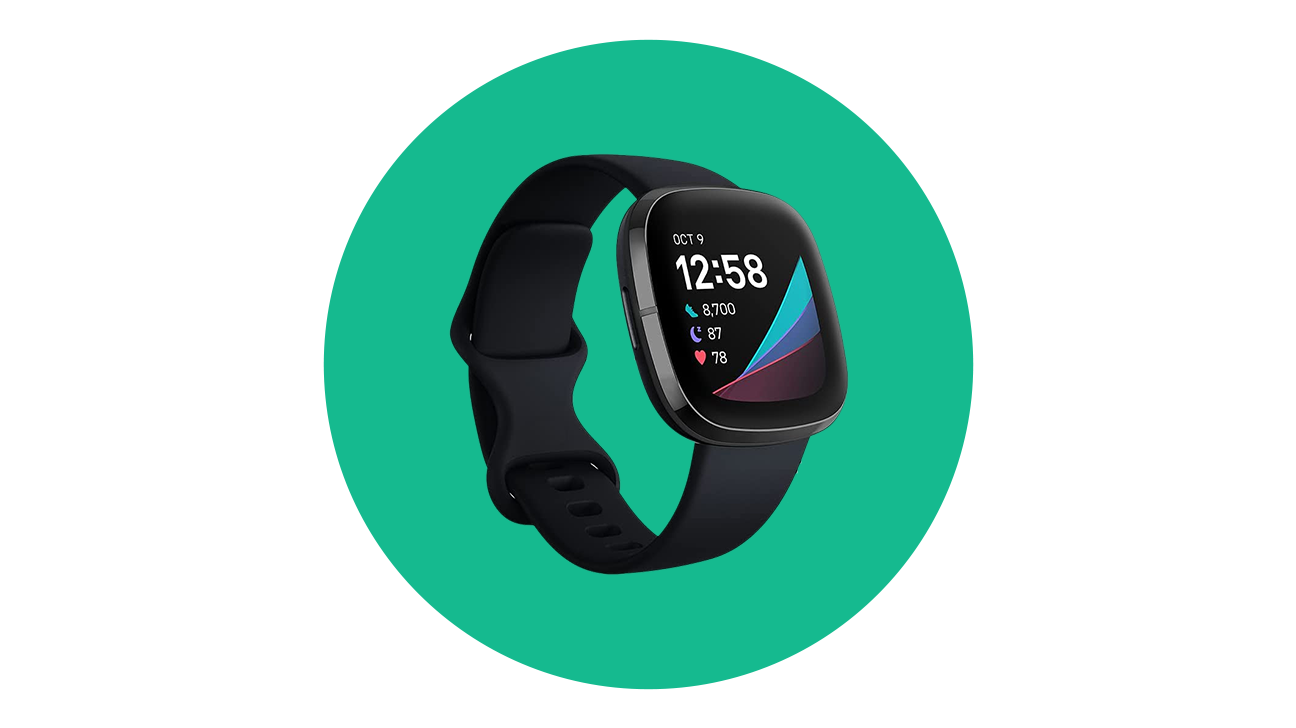
- Price: $$
- Type: watch
- Battery life: 6 days
- What it tracks: sleep stages, heart rate, blood oxygen levels, temperature, stress levels, activity tracking
Fitbit is one of the OG big brand activity trackers, and for good reason. The company’s products offer a variety of tracking capabilities, right from the (literal) comfort of your wrist.
The Fitbit Sense’s sleep function tracks the stages of your sleep cycle, how long you’re in each, and what’s going on with your bod while you snooze (including if you’re snoring!). It analyzes your heart rate, blood oxygen levels, temp, and even nighttime stress levels to provide you with insights and recommendations on how you can achieve better sleep moving forward.
This smartwatch also has a variety of other health-happy features, so you can get a 360 view on all aspects of your physical and mental wellness. It also lets you check your texts, emails, and messages (but you can only reply if you’ve got an Android phone… sorry, iPhone users).
While reviewers praise the Sense’s design and comfort, they’re not too fond of the high price point. Many have also had issues with the watch’s heart rate monitor, saying it’s not always the most accurate.
They do, however, love that extra features, like O2 and ECG sensors, have been added to this model. Overall, many find this to be a great smartwatch and sleep tracker with lots of awesome features — and lots of potential to be even better when the next gen of this model comes out.
Pros
- comfortable band
- long battery life
- mindfulness tools to support relaxation and better sleep
- built-in smart alarm
Cons
- some features require premium subscription
- amount of features can be overwhelming
- text message replies only available for Androids
Best wearable sleep tracker
Oura Ring Generation 3
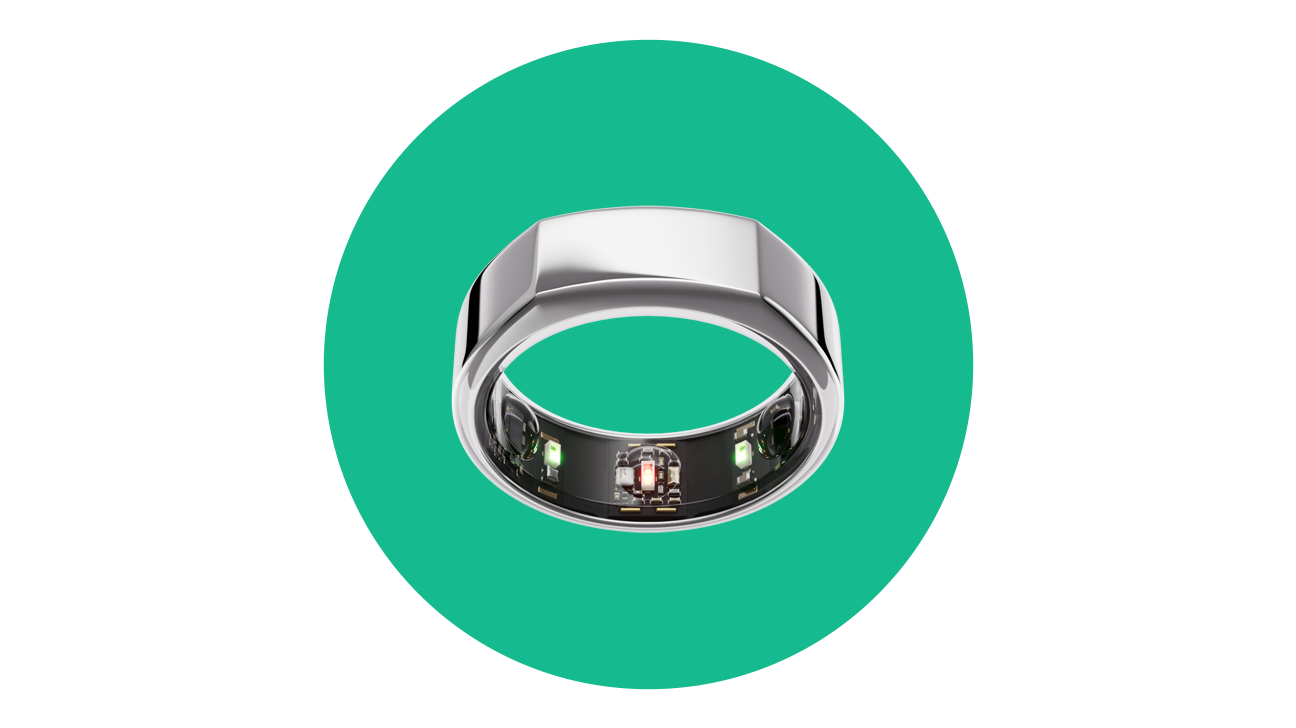
- Price: $$
- Type: ring
- Battery life: 4 to 7 days
- What it tracks: sleep stages, heart rate, blood oxygen levels, body temp
The Oura Ring is specially designed to recognize the delicate balance between rest and activity. It automatically adapts to you, and intuitively tracks your habits and behaviors to deliver comprehensive insights into how you can up your health game. It can even detect when you’re tired, not feeling well, or even stressed.
This tiny wearable is always hard at work, especially while you’re asleep. With a new, state-of-the-art sleep staging algorithm, it fairly accurately tracks your key vitals, as well as the quality and duration of your sleep. It even provides you with specifics on each stage of your nightly snooze, so you know just when those sweet REM cycles were happening… and when they may have been interrupted.
Most users love the comfort and discretion of the Oura Ring. They often even forget they’re wearing it! However, the price point can be quite the pain point with this device — especially as you need to shell out an additional monthly fee if you want access to more data tracking.
The Oura Ring is available in sizes 6 through 13, and the company recommends wearing your ring on your index finger (though you can choose whichever finger you prefer!). They also don’t offer half sizing, so it may not be worth the hefty price tag if your ring size isn’t available.
Pros
- water-resistant
- small footprint
- comfortable
- compatible with both Apple Health and Google Fit
- highly accurate
Cons
- high base price
- extra fee for subscription upgrade
- no half sizes available
Best sleep tracker with O2 sensor
Wellue O2 Ring
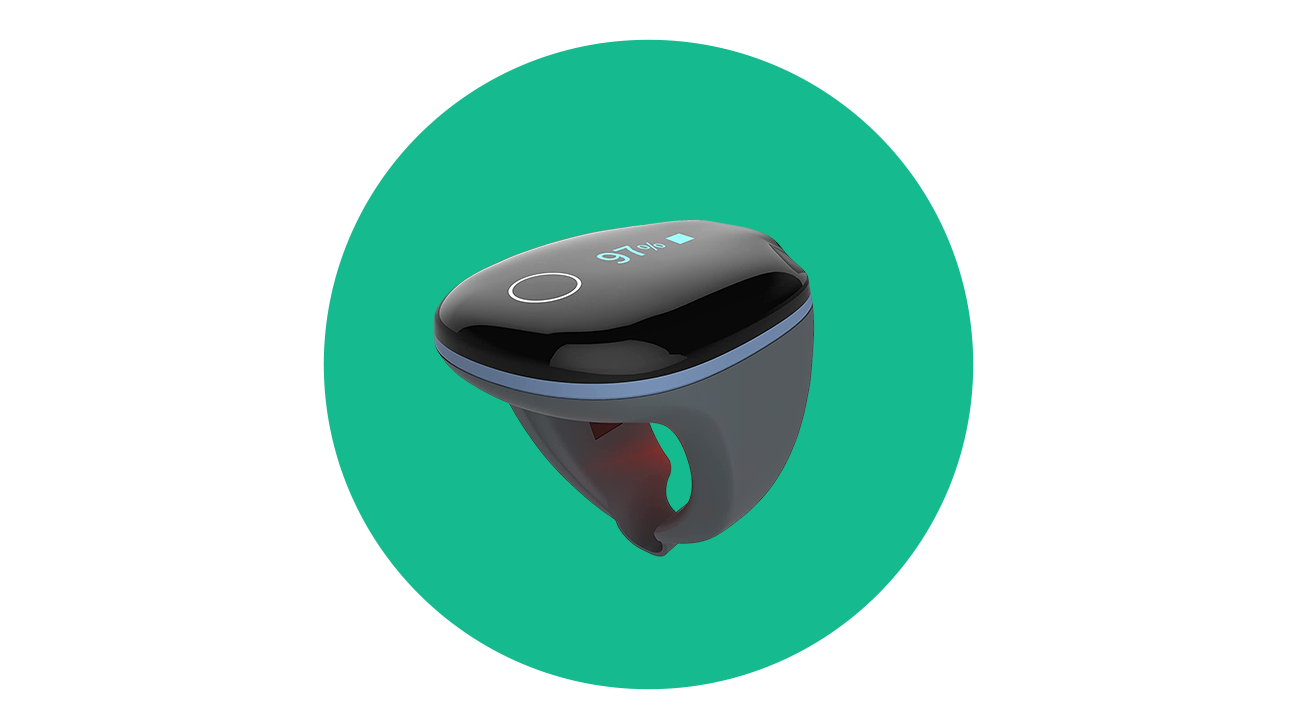
- Price: $$
- Type: ring
- Battery life: up to 16 hours
- What it tracks: oxygen levels, heart rate, body movement
If you’re looking for a straightforward oximeter, this may be the one for you. The Wellue O2 Ring is a wearable pulse oximeter that tracks your blood oxygen saturation and heart rate all night long. It detects any dips or abnormalities in your oxygen levels and vibrates to put you on the alert.
When wearing the Wellue O2 Ring, data is recorded every 4 seconds to give you a detailed look at your oxygen levels and how they may be fluctuating. You can also easily export the data into a spreadsheet, making it simple to share the info with your doc if any issues arise.
Most users love the “set it and forget it” nature of this O2 sleep device. They find it to be comfortable, easy to use, and not bogged down by a bunch of other apps or features. They also enjoy the fairly affordable price point.
Some users, however, find that the battery drains quickly, often not even staying charged for 2 full night’s of sleep. Others had difficulty with the ring’s sizing, finding it either too big or too small for their needs.
Pros
- affordable
- data can be exported
- lightweight
- customizable alarm vibrations
Cons
- sizing isn’t inclusive
- indicator lights are bright
- battery sometimes drains quickly
Best tracker for fitness and sleep
Garmin Venu 2

- Price: $$$
- Type: watch
- Battery life: up to 11 days
- What it tracks: sleep duration, sleep stages, stress levels, blood oxygen levels, energy levels, fitness data
If you’re looking for an all-in-one tracker system, the Garmin Venu 2 is a great option to consider. This smartwatch not only monitors your sleep activity, but it also offers a comprehensive and detailed look at nearly every aspect of your health and wellness — including providing on-screen workouts, tracking your stress levels, and even evaluating your energy levels throughout the day.
As a sleep tracker, Garmin tracks a variety of data, including your different sleep stages, stress levels, heart rate, respiration, and blood oxygen level. It then generates a “sleep score” each night to rate the quality of your sleep — AND provides you with info on how to improve it.
The Garmin Venu also boasts an impressive 11-day battery life when in smartwatch mode, is crafted using durable materials to withstand any activity, and even connects to your smartphone so you can check your texts, emails, and messages.
The sheer amount of apps and functions can make this an overwhelming option for people looking for a simpler device. And while users looking for a full-out health tracker enjoy their Garmin Venu 2’s, many agree it’s a bit pricey. Others aren’t fans of how the GPS and music features drain the battery, limiting use between 8 and 22 hours instead of the 11 days offered in smartwatch mode.
Pros
- long battery life
- durable glass and materials
- animated on-screen workouts
- smartphone compatible
- plays music
Cons
- expensive
- sleep features are limited
- amount of features can be overwhelming
Best under-mattress sleep tracker
Withings Sleep Tracking Pad
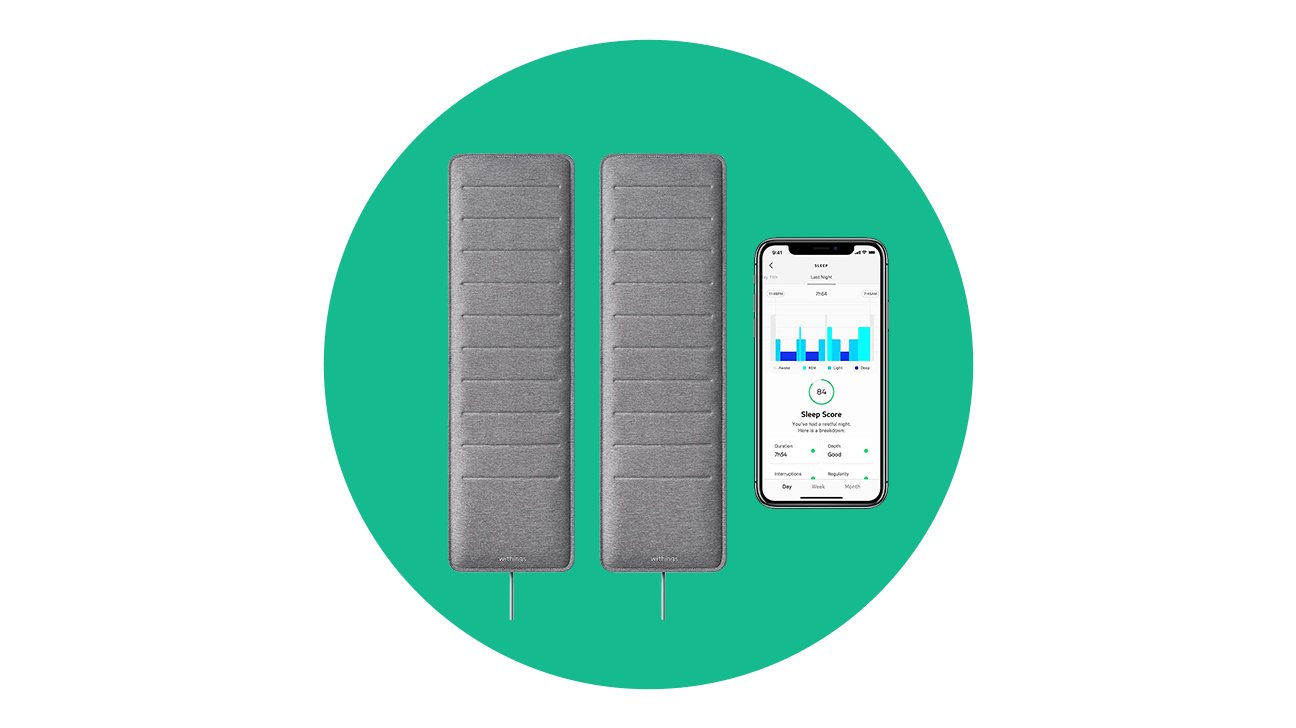
- Price: $
- Type: under-mattress
- Battery life: N/A (outlet powered)
- What it tracks: heart rate, sleep cycles, snoring detection, breathing patterns
Under-mattress sleep trackers are a great alternative for people who don’t want to wear a device while they sleep. Simply slip them under your mattress, plug ‘em in, and let ‘em do their thing.
With the Withings Sleep Tracking Pad, you’ll get the lowdown on all your key sleep stats, including each of your sleep cycles and their durations, breathing patterns, when/if you’re snoring, and your heart rate. This easy-to-use device can also be set to control your lights and room temp, so you can say goodbye to getting out of bed when you’re already huddled in for the night!
Users enjoy the comprehensive analytics this tracking pad provides, sharing that it helps them make the right adjustments to improve their sleep style. And most absolutely l-o-v-e the fact that they don’t have to wear anything — there are no worries about comfort or a device slipping off in the night.
While most users are fans, people with larger mattresses (like kings or CalKings) found that this pad isn’t long enough to accommodate the entire space. Also, sleepers who move around the bed a lot may not get all of their data tracked if they find themselves in an area that the mat doesn’t reach.
Pros
- undetectable
- no battery
- Amazon Alexa compatible
Cons
- may be too small for larger bed sizes
- needs to be plugged in
Best budget sleep tracker
Sleepon Go2Sleep Tracker
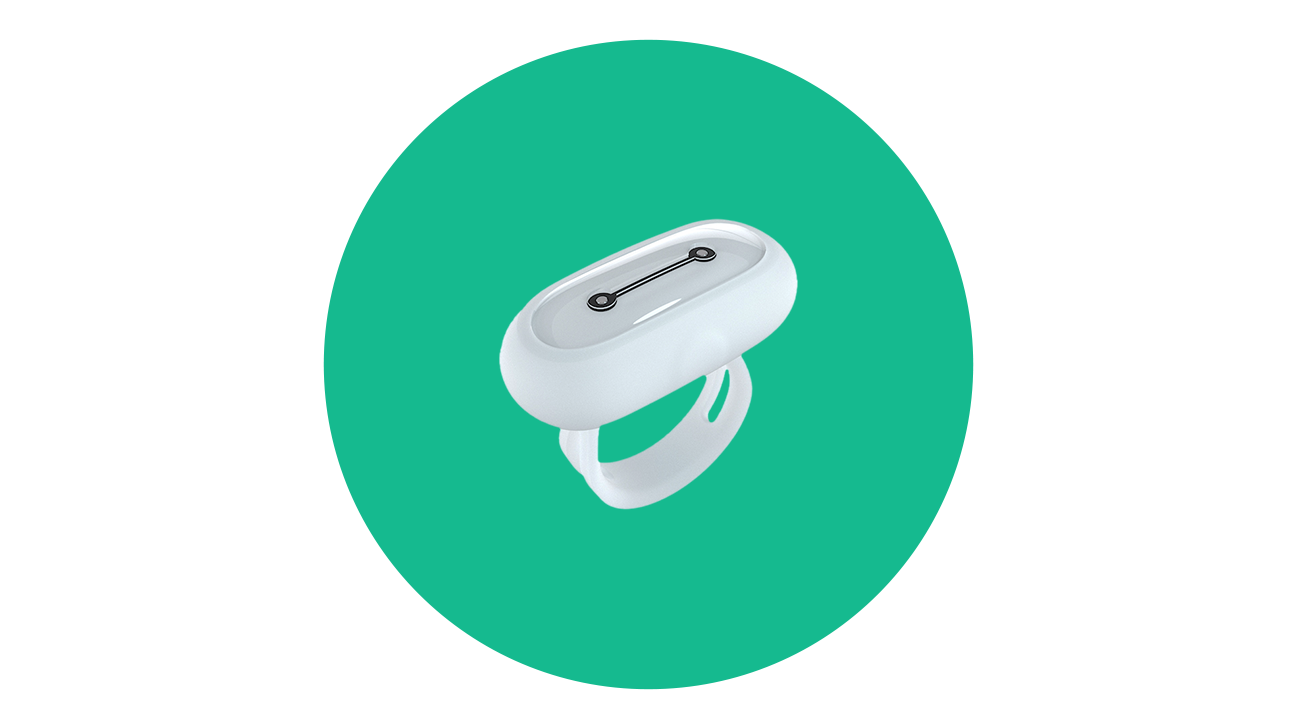
- Price: $
- Type: ring
- Battery life: 24 hours
- What it tracks: sleep duration, sleep stages, blood oxygen levels, heart rate
The Sleepon Go2Sleep Tracker is affordable, easy to use, and offers a ton of insight into your night’s rest. It’s made of food-grade silicone, so it’s also super comfortable for your night’s wear.
Because it focuses solely on sleepy time, you don’t have to worry about other apps or data distracting you from analyzing and understanding your sleep health. This ring tracks your sleep quality and duration, as well as your oxygen levels and heart rate. If it detects any abnormalities, it alerts you ASAP with a vibrating alarm.
It’s also super intuitive, adjusting to your sleep patterns. It even waits until you’re in a lighter phase of sleep to wake you, so you can feel refreshed and ready for the day.
Users are big fans of this budget-friendly wearable, and many find it useful for tracking the sleep habits of their entire household. Some users did note, however, that while the device continuously tracks data while worn, you can’t sync the data or upload it to your devices until you take the tracker off. This can be bothersome if you forget you’re still wearing it.
Pros
- lightweight
- easy to use
- affordable
- intuitive alarm
- Apple and Android compatible
Cons
- needs to be taken off to synchronize data to generate reports
How to choose a sleep tracker
While we’ve listed just a few of our faves, there are many, many different sleep trackers out there to choose from. If you’re on the hunt for the tracker of your dreams, we recommend considering the following while you shop:
Tracker type
Watches, rings, and mats — you’ve got options, hunny.
With so many tracker type options available, it’s important to determine which one is best for your sleeping style. While wearable options are great, they can get in the way of your sleep. If you don’t find wearing a wristband or ring to bed comfy, consider nonwearable options, like an under-mattress pad.
Considering what will best mesh with your sleep needs will help you enjoy uninterrupted sleep — and primo tracking!
App analytics
Not all tracker apps are created equally. Some apps track more in-depth analytics (like temperature, sound, and oxygen), while others only cover the basics (like movement or how long you sleep). Knowing what data you find most essential can help you determine what device will be best for you.
Keep in mind, the more detailed the data, the more you usually have to pay for your tracker. In many (but not all!) cases, pricier products tend to offer more bells and whistles versus budget-friendly devices, which may have less complex info to analyze.
Battery life
Some sleep trackers need to be charged every 1 or 2 days (we’re looking at you, Apple Watches!), while others can be worn for a week or more before the battery gets down to zero (what up, Oura Ring!).
Consider your lifestyle and what works best for your needs when shopping for a new device. If you don’t want to be bothered with battery power, consider an under-mattress option — these are often plugged in while you use them, so you’ll never have to worry about forgetting to juice your tracker up before use.
Other features
Ask yourself this: Are you looking for a straight-up sleep tracker, or would you prefer your device to be a bit *extra*?
Simple sleep tracking devices often only have the capabilities to monitor your sleep mode. While they may have a few additional features — like an oximeter or cool alarms (that can literally shake you awake with vibrations!) — each function will center around sleep.
General health trackers provide far more fanfare. These devices will dive deep into all aspects of your well-being, from how well you sleep and the number of steps you take each day to how many calories you’re eating and when your next period’s gonna start. Some devices can even be synced to your phone, so you can check your texts and jam to your fave tunes right from your wrist!
Knowing what special features you want in your device can help you narrow down the choices and make an informed decision on what works best with your lifestyle.
Frequently asked questions
What are the benefits of sleep trackers?
Sleep trackers monitor your sleep habits by tracking your movement, body temp, heart rate, and even your breathing, providing you with detailed info on the overall quality of the sleep you’re getting.
This can benefit you by helping identify any habits or behaviors that may be preventing you from getting a quality night’s rest, so that you can make changes to improve your snooze time.
Sleep trackers can also alert you if anything hinky is happening, so you can identify potential sleep probs and talk with your doc to form a treatment plan.
What is the most accurate sleep tracker?
Hate to break it to you, but no device is ever 100 percent accurate — there’s always going to be some margin of error.
Sleep trackers aren’t meant to be a substitute for a formal sleep study or doctor’s diagnosis. Sure, they can track your night moves and keep tabs on your vitals, but they can only offer estimated assessments about your sleep health. They can’t give you solutions to any issues you might be facing. They can only provide you with the info you need to take action yourself.
Are sleep trackers worth it?
TBH, it all kind of depends on what you’re looking to get out of your sleep tracker.
Again, no device is perfect, and a sleep tracker isn’t going to solve any sleep woes on its own. But using the data it provides can help inform the actions you take to improve your overall quality of sleep. So, if you’re experiencing sleep issues, a sleep tracker can be totally worth it in understanding your sleep behavior and how you can adjust it.
What is the best way to track your sleep?
If you’re experiencing regular sleep problems, the best way to track what’s going on is to talk with your doc. They can schedule a sleep study to figure out what’s going on, whether you’re dealing with an underlying issue or a sleep disorder — such as insomnia or sleep apnea — is keeping you from getting in those quality REM cycles.
The bottom line
Sleep trackers can provide you with valuable insights into your sleep by monitoring key vitals, like sleep cycles, heart rate, oxygen levels, and how long you’re sleeping. This info can help you make positive changes to enhance the quality of your snooze time.
There are many different sleep trackers on the market, from smartwatches that track every detail of your health and wellness (not just sleep) to under-mattress pads that only analyze your bedtime antics.
Finding the best sleep tracker depends on your specific sleep needs and lifestyle. Factors such as must-have features, whether a device is wearable, and battery life should all be considered when shopping for the sleep tracker of your sweet dreams.


0 Commentaires